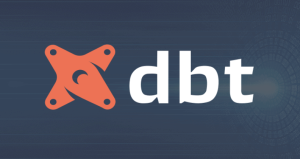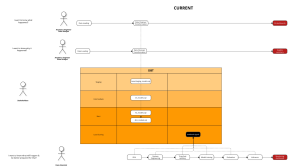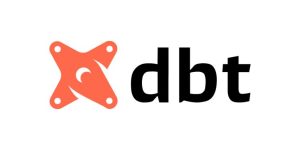Driving Personalization and Efficiency for Hoteliers
Hotels and tourism organizations are streamlining their operations, enhancing their guest experience while gaining a competitive edge in the market. In this article, we explore the benefits of automation and how it is revolutionizing the way hotels and tourism businesses operate.
The Rise of Automation in Hospitality
Automation is enabling hotels to optimize pricing and revenue management and improve operational efficiency. According to a study by Phocuswright, 68% of hotels are also using data to automate personalized guest experiences. It allows hotels to tailor their services and offerings to meet the unique preferences and needs of their guests, resulting in increased customer satisfaction and loyalty.
Automation also plays a crucial role in revenue reporting and forecasting. By leveraging data analytics and automated reporting tools, hotels can gain real-time insights into their financial performance, occupancy rates, and revenue streams. This enables them to make data-driven decisions, identify trends, and develop effective strategies to maximize their revenue potential.
Optimizing Pricing and Revenue Management
One of the key areas where automation has had a significant impact is pricing and revenue management. According to Deloitte, 55% of hotels are using data to optimize their pricing!
By analyzing market trends, competitor pricing, and customer behavior, hotels can dynamically adjust their rates to maximize revenue and occupancy. Automated revenue management systems can monitor demand, adjust prices in real-time, and provide recommendations based on historical data and market conditions.
Furthermore, automation allows hotels to implement dynamic pricing strategies, ensuring that room rates are aligned with demand fluctuations. This flexibility enables hotels to capture revenue opportunities during peak periods and optimize occupancy rates during low-demand periods. By leveraging automation, hotels can achieve higher revenue per available room (RevPAR) and improve their overall financial performance.
Streamlining Operations and Enhancing Efficiency
Automation has also transformed various operational aspects of the hospitality industry. From check-in and check-out processes to housekeeping and inventory management, hotels are leveraging automation to streamline operations and enhance efficiency.
Automated check-in systems and self-service kiosks allow guests to bypass traditional front desk queues, reducing wait times and improving the overall guest experience.
Additionally, automation enables hotels to centralize their operations and establish a single source of truth for data. By integrating various systems and platforms, hotels can consolidate data from different touchpoints, such as booking engines, property management systems, and customer relationship management tools.
This centralized data repository provides a holistic view of guest preferences, booking patterns, and other important metrics, allowing hotels to make data-driven decisions and deliver personalized experiences.
The Role of Data Analytics in Automation
Data analytics enables hotels to gain valuable insights into customer behavior, market trends, and operational performance. According to a study by Hotel News Now, 73% of hoteliers say they are using data to improve their operations.
Data analytics tools enable hotels to analyze large volumes of data, identify patterns, and generate actionable insights. By leveraging advanced analytics techniques, hotels can uncover valuable information about guest preferences, booking patterns, and spending habits. This information can be used to segment customers, personalize marketing campaigns, and tailor offerings to specific target audiences.
Moreover, data analytics allows hotels to optimize their marketing efforts and allocate resources more effectively. By analyzing the effectiveness of different marketing channels and campaigns, hotels can identify the most profitable channels and focus their efforts on driving revenue and customer acquisition.

Staying Competitive in the Digital Age
In today’s highly competitive hospitality industry, staying ahead of the curve is crucial for success. Leveraging automation and data analytics enables hotels to:
- Personalize the guest experience: Analyzing guest data and preferences enables hotels to deliver personalized experiences and exceed guest expectations.
- Optimize pricing and revenue management: Hotels can dynamically adjust room rates based on demand fluctuations to maximize revenue potential.
- Streamline operations: Automation streamlines various operational processes, reducing costs, and improving efficiency.
- Make data-driven decisions: By leveraging data analytics, hotels can make informed decisions, identify opportunities, and develop effective strategies.
- Enhance customer loyalty: Personalized experiences and efficient operations contribute to customer satisfaction and loyalty, driving repeat business.
The Future of Automation in Hospitality
As technology continues to evolve, automation will play an increasingly important role in the hospitality industry. Advancements in artificial intelligence, machine learning, and robotics will further enhance the capabilities of automation, enabling hotels to deliver even more personalized and seamless experiences.
In conclusion, automation is revolutionizing the hospitality industry, driving personalization, efficiency, and revenue growth. By leveraging data analytics and advanced technologies, hotels can optimize pricing, streamline operations, and deliver exceptional guest experiences. Embracing automation is no longer an option but a necessity for hotels and tourism businesses looking to thrive in the digital age.
- Elevating Wellness through Data-Driven Personalization: Restore Case Study - November 11, 2023
- Revolutionizing Credit Risk Management: Ameriprise Financial’s ML Leap - November 10, 2023
- Elevating Customer Engagement: VinID’s Personalization Strategy - November 9, 2023




